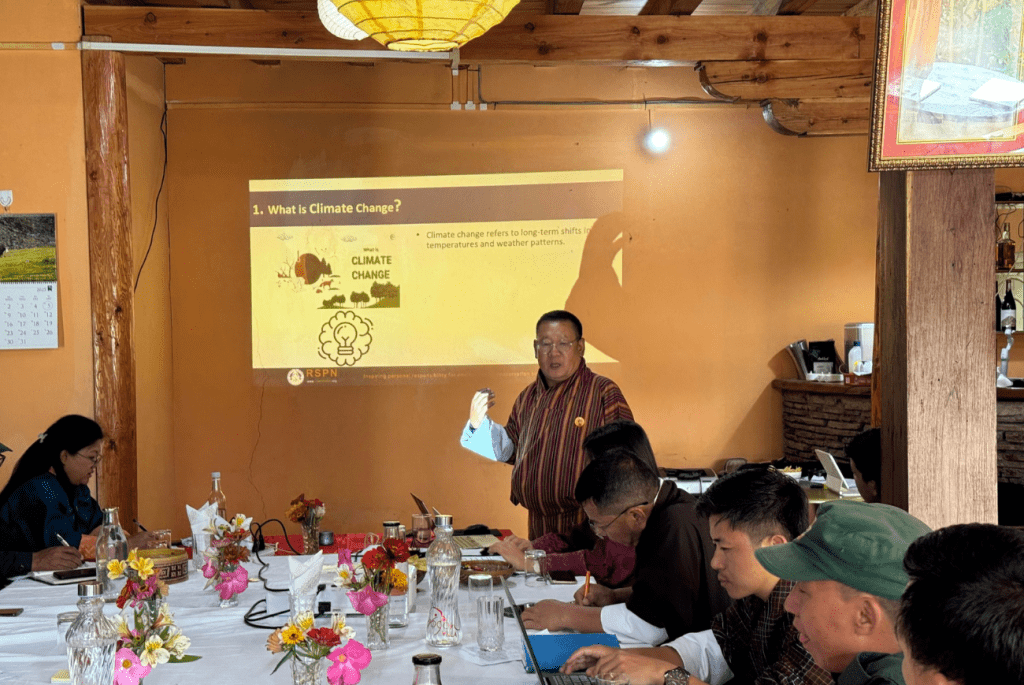This session focused on understanding #ClimateChange – its causes, impacts, and the actions we can take. The discussion emphasized that climate change is not a distant issue but is already influencing our lifestyles, ecosystems, and way the planet Earth functions.
Through an interactive group activity, participants traced the journey of everyday utilities to see how they are produced, what materials are used, what wastes are created, and the consequences it brings to impact the climate. This exercise sparked engaging conversations, allowing participants to see the hidden connections between human activities, resource use, waste generation, and the climate system. It highlighted how small, everyday actions are link to broader environmental impacts and how collective awareness can drive more sustainable choices and positive behavioural changes.
The session also highlighted our local action connectivity to the global effort to combat climate issues. As an important means, emphasis were made to take steps from documentating phenophases, observing the life-cycle events in plants and animals to adopting some of Sustainable Development Goals that can contribute in building climate science and actions, the reality event to proof climate change is real, and there is urgency to take climate actions.

Copyright © 2026 RSPN All Rights Reserved